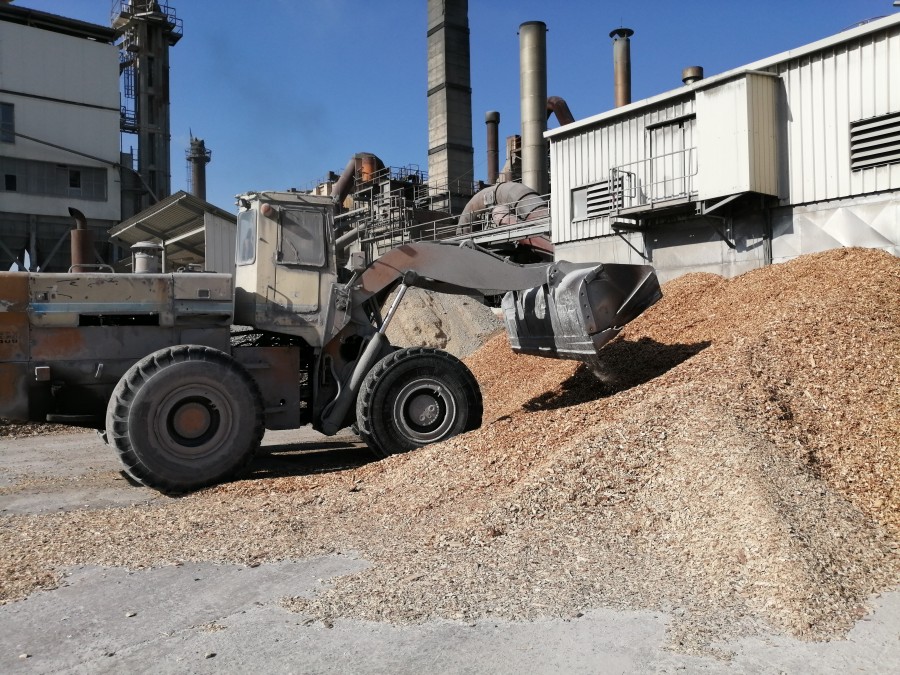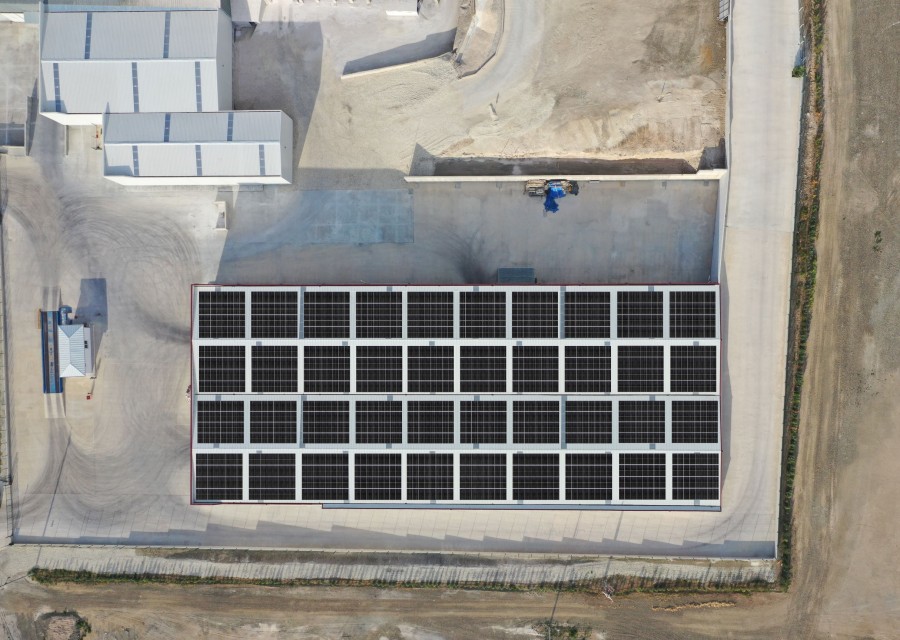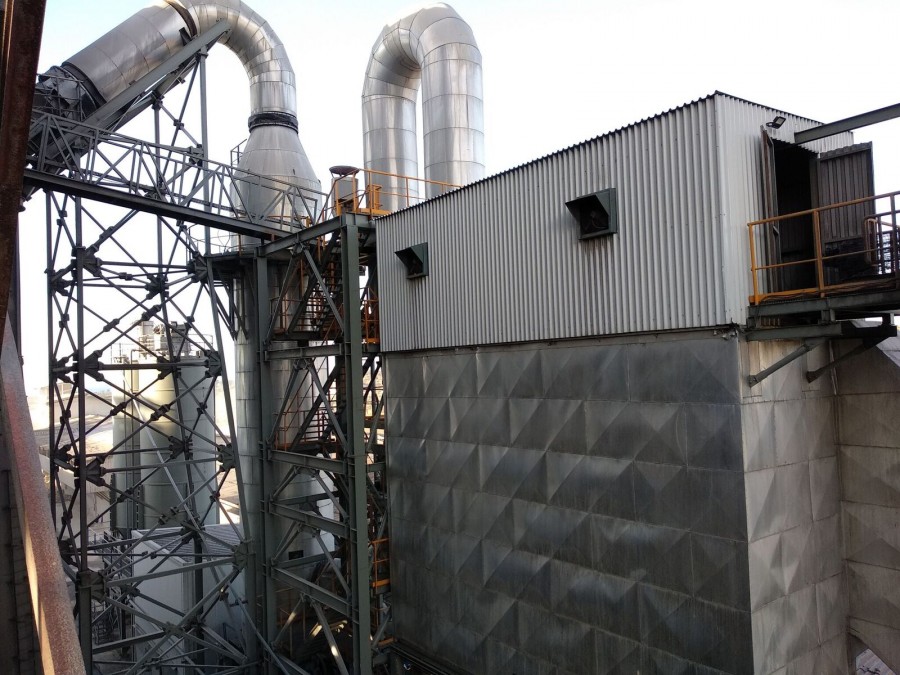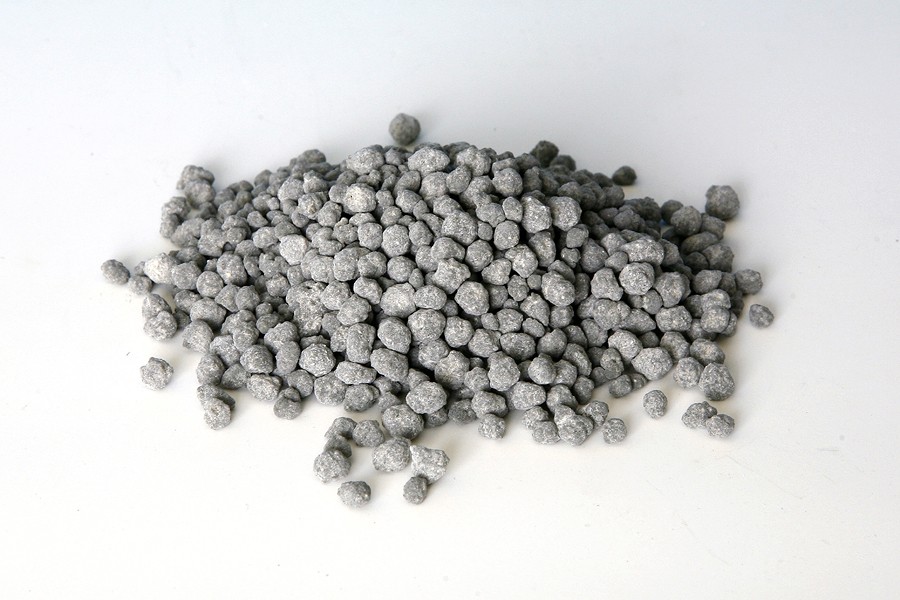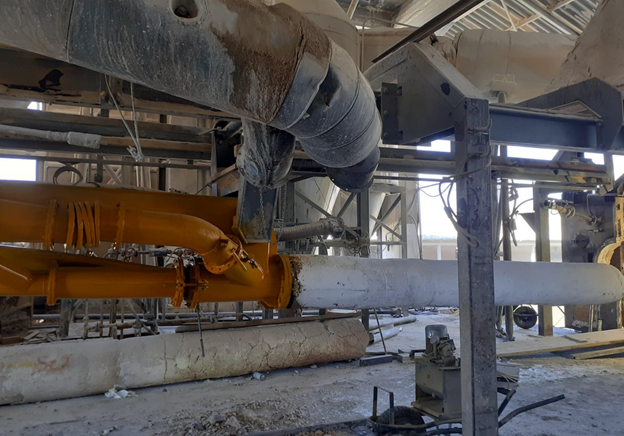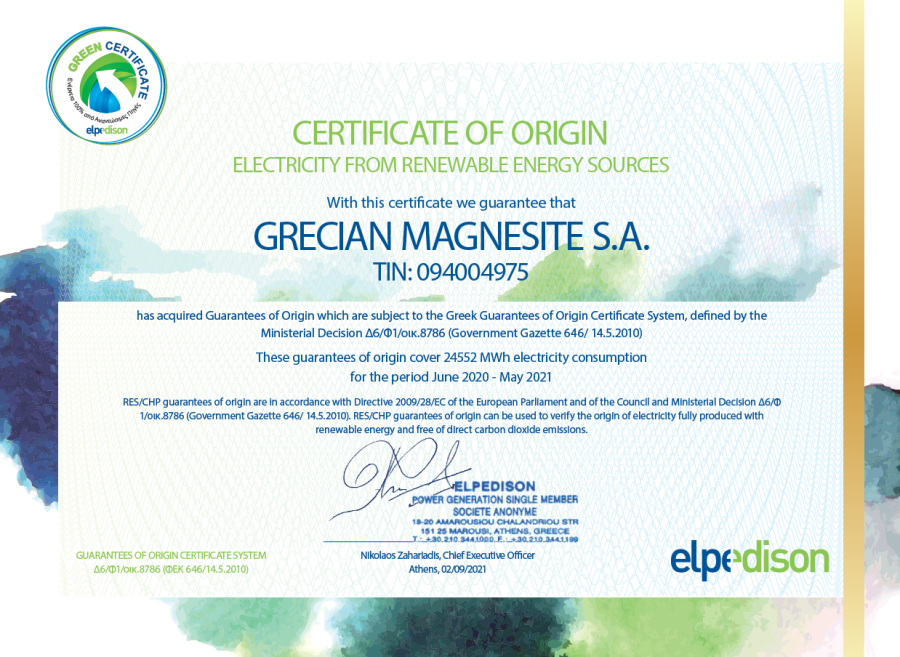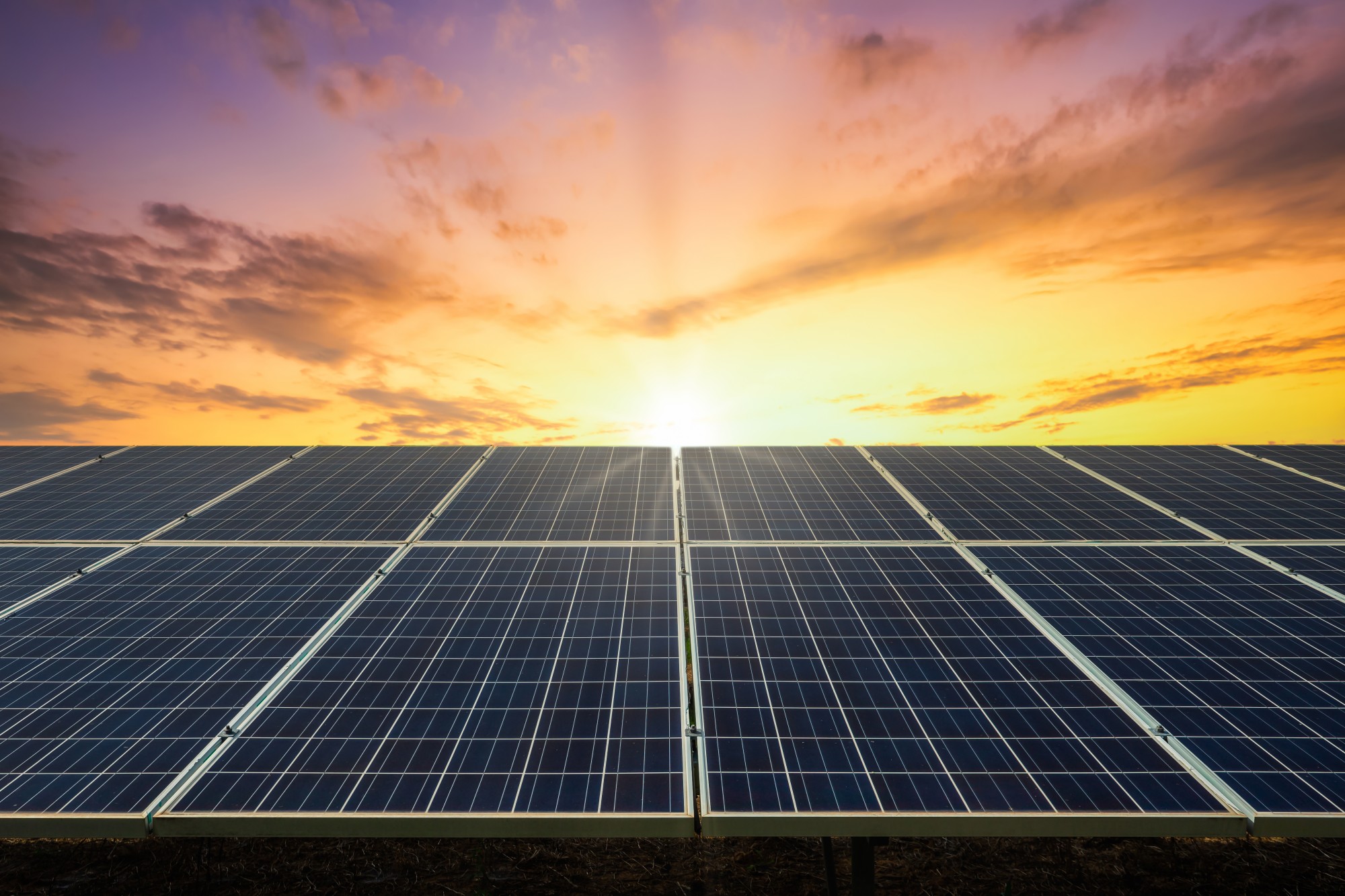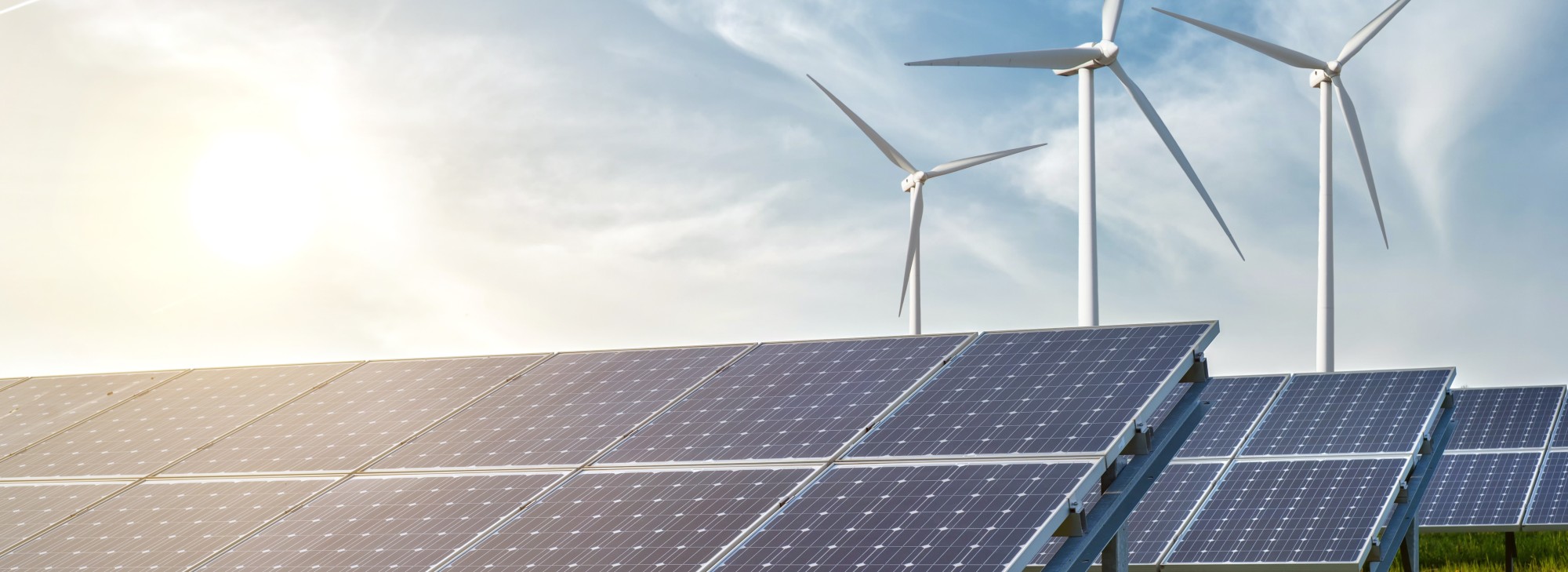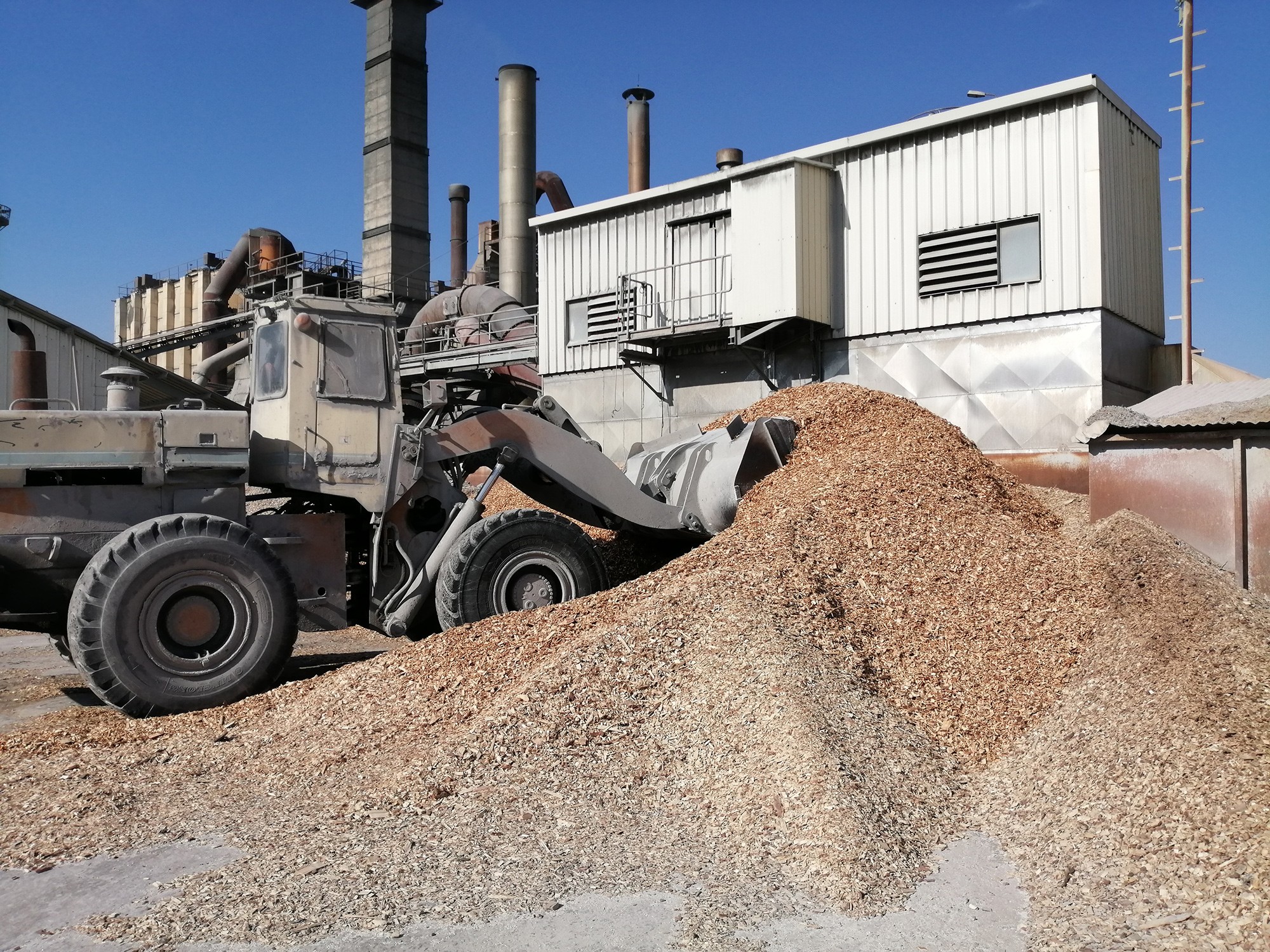
Climate & Energy
Grecian Magnesite addresses in multiple simultaneous ways the objectives of maximizing its energy efficiency as well as playing its part in the joint effort to achieve climate neutrality by 2050 as set by the EC.
Latest among a slew of emissions focused energy efficiency measures that are either being investigated or actively pursued are described below:
- The replacement of fossil fuels with sustainably-produced biomass is a major focus area for Grecian Magnesite. During 2022, the contribution of biomass to our overall thermal power requirements was approx. 10% (on energy basis) whereas this figure is set to increase above 20% within 2023 and more than 40% from 2024 onwards. The biomass used by GM mainly consists of agricultural waste coming from the entire Chalkidiki region.
- Thorough investigation of the possibility to fully replace the solid fossil fuels used in the Rotary Kilns with LNG is already under way. When realized, this fuel switch would not only result in the reduction of CO2 emissions by at least 40% but render flue gas desulfurization unnecessary as well. Finally, the use of LNG is expected to improve energy efficiency by at least 8%.
- Geogenic emissions from raw materials represent a big part of the company's direct emissions (scope 1, 2). CO2 is released when raw magnesite (MgCO3) is processed into magnesium oxide (MgO). These process emissions represent a major environmental focus area for Grecian Magnesite. To this end, continuous efforts are being made to recycle and commercialize the greatest part of the captured rotary kiln dust as well as dusts from all downstream processing units. At present, more than 50% of these dusts are converted via pelletizing and recalcination into a saleable product under the brand name PSM (pelletized sintered magnesia). PSM has a significantly lower CO2 footprint compared to conventional DBMs (-17,5%). Further investments are underway to increase recycling/pelletizing rates above 95%.
- Systematic exploitation of the thermal energy contained in the rotary kiln flue gases to obtain proper drying of magnesite prior to magnetic beneficiation.
- Successful operation of a novel FGD plant fed with the flue gases of RK-3. Plant operation relies on the dry injection of MgO-based sorbents deriving from existing stockpiles of formerly unexploited mining waste. Research efforts to valorize the FGD plant byproduct are currently underway.
- Installation of low-NOx burners of our own making in RK-2 and RK-3. Preliminary results from the operation of these burners show that NOx emissions can be reduced up to 30% even under the high temperature conditions employed for DBM production.
- Energy efficiency measures are being implemented in the company's operations with modern Energy Management systems which will allow the automatic monitoring of energy consumption, thus facilitating and providing transparency to the management of the company's energy matrix.
- The company actively participates in various National and EU funded R&D projects focused on “CO2 capture technologies” (study and selection of the most appropriate CO2 capture technologies which can be implemented at Grecian Magnesite's production plants).
- Grecian Magnesite has been obtaining Green Certificates for its energy consumption. The Green Certificates are the Guarantees of Origin of Electricity from Renewable Energy Sources (RES), which are issued by the Renewable Energy Sources Operator & Guarantees of Origin (DAPEEP), according to EC directives 2003/54/EC and 2009/72/EC.
- Simultaneously, committed on our corporate objectives of reducing Greenhouse Gases (GHG) emissions, the company is investing on renewable energy sources by installing solar photovoltaic (PV) plants on its land and buildings. Currently, we operate two such plants: a roof-type solar energy system at our production site in Kumbet, Turkey, and a ground-mounted PV plant situated in Yerakini, Chalkidiki, Northern Greece.
